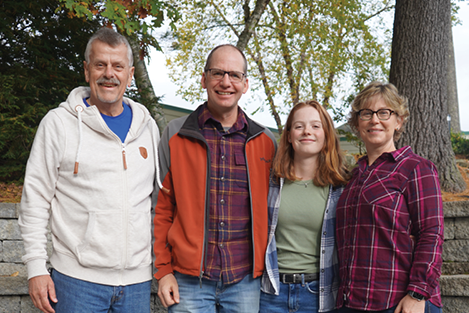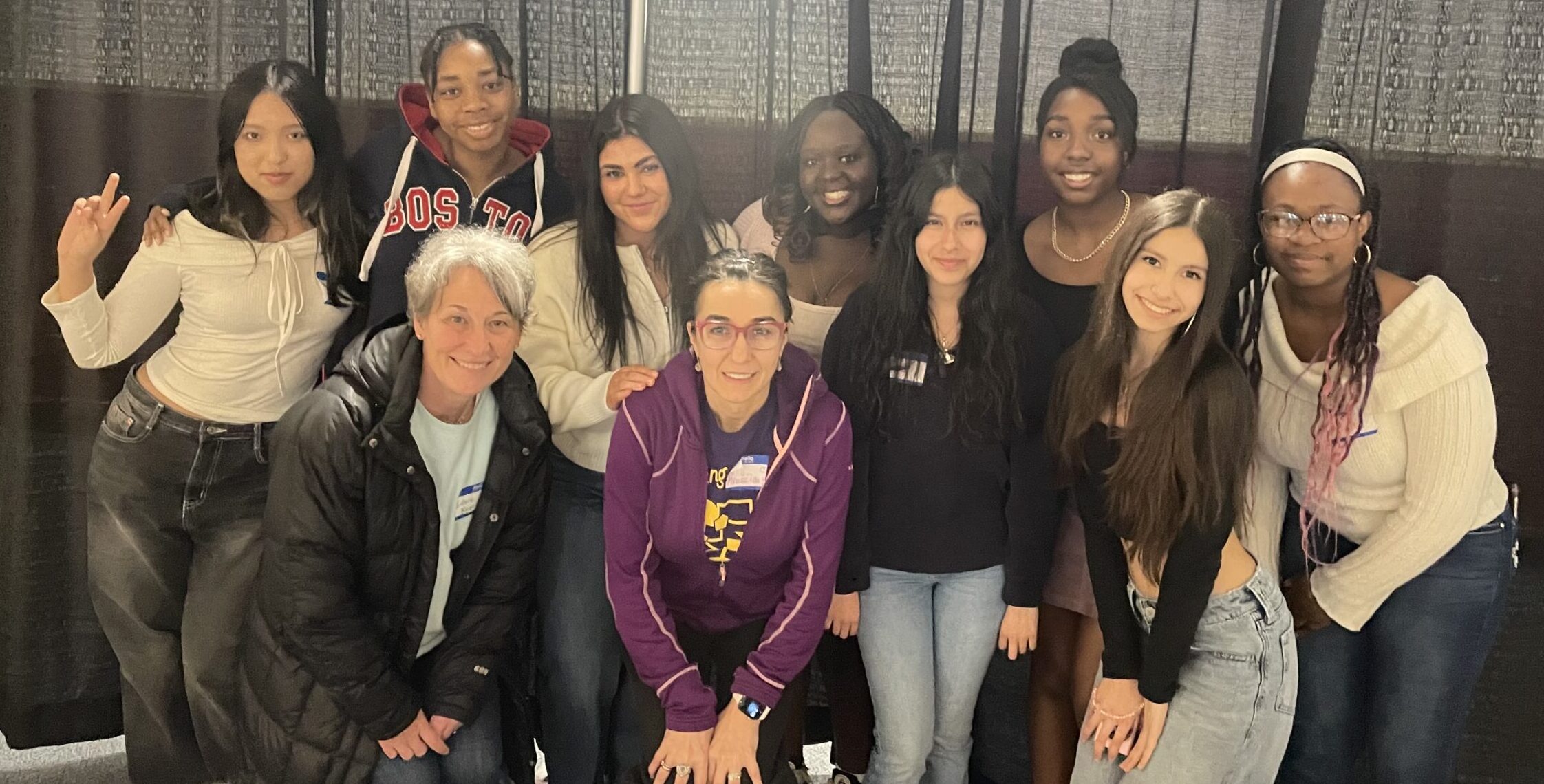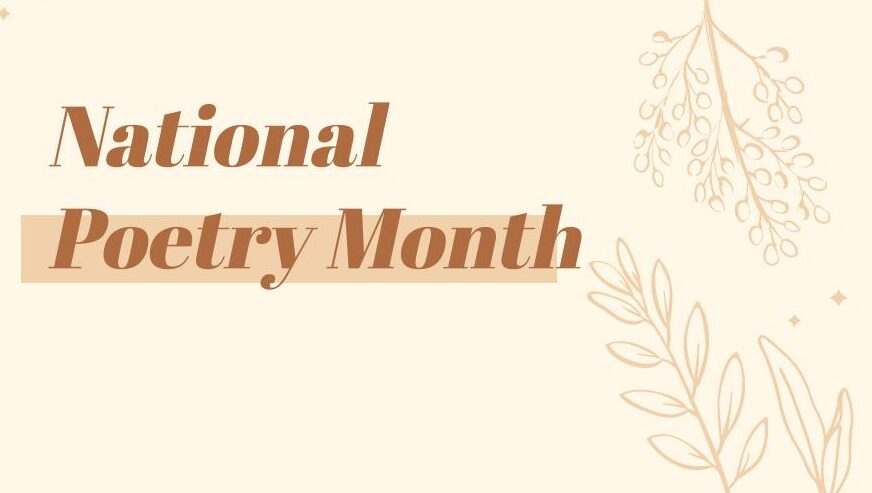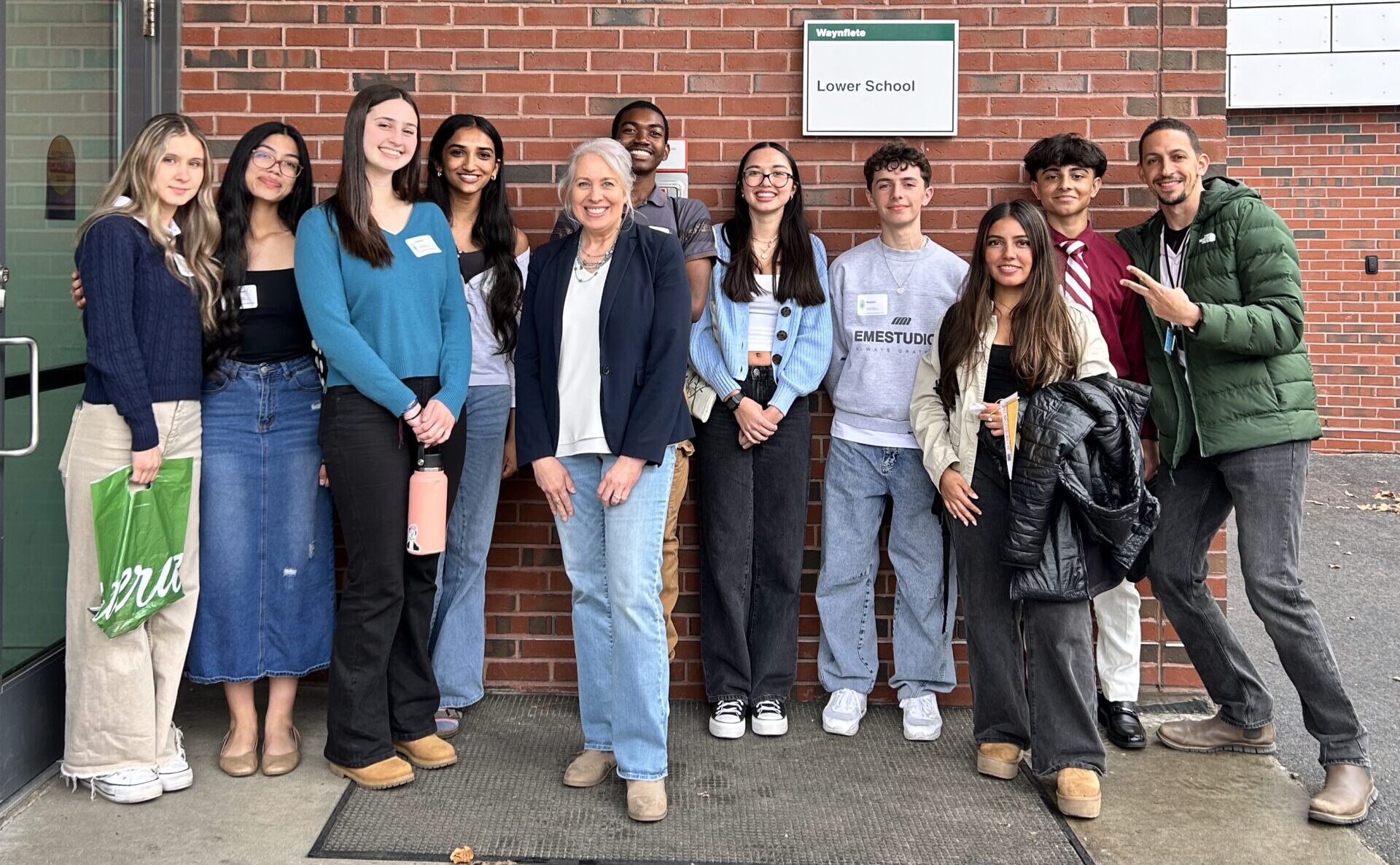By Elaine Loft
Each year The Derryfield School chooses a member of the senior class to receive the Simeon Kass Award, in honor of Simeon Kass, who survived the Holocaust as a young boy. The Boelig Family, who had two children graduate from Derryfield, were friends with Kass late in his life. They created the award in 2007 to honor him, his life experiences, and his passions. “Uncle Sim,” as he was known to the Boelig children, was a Jewish Parisian whose mother and two young brothers all died at Auschwitz. The 2023 recipient, announced on October 23 during the school’s weekly Community Meeting, is Eleanor Kerwin ‘24.
Kerwin’s essay, entitled “Ragtime,” explores the nature of the human experience through music and through loss. Eleanor shares vulnerably about watching her incredibly talented grandfather develop Alzheimer’s Disease and the impact it had on the culture of her family.
“It was in this darkness that I discovered the true power of music. In a last effort to find my grandfather in the man who wandered estranged from his own home, my aunt sat him at the piano and wiped the fine layer of dust that had settled on the keys. When my grandfather sat at the piano, an instrument he could no longer name, his hands found the keys once more. Like finding a well-worn path, they flowed like a river trailing a string of notes, a final tether to reality. His feet tapped to a fabricated beat. The song was joyful, hopeful and rejuvenating. At once the coldness and silence that had slowly encroached on the house was expelled back into the night. At the time, I saw the performance as almost a return to normalcy, but looking back, it was a goodbye, the last time the master commanded his craft.”
The Simeon Kass Award for Writing and Humanistic Inquiry is given to a student who demonstrates an interest in learning beyond what surfaces in day-to-day life. The recipient must demonstrate outstanding writing skills, an appreciation of other cultures, a burning inquisitiveness, and the disposition to take a position and challenge opinions.
According to the Boeligs, Kass carried around a notebook everywhere he went, taking notes and writing down phrases—he was always learning and was always inquisitive. Although he lost much of his family, what the Boeligs remember are his resilience and love of life. Kass honored the power of education to push back the darkness of prejudice, fear, and brutality. He believed that knowledge, when combined with a burning curiosity and compassion, illuminates the most beautiful things in this world. So too did the founders of Derryfield.
Full Essay Below
“Ragtime”
The house was made of music, not thin wispy music that can go unnoticed, but music that
resonated and reverberated around the small rooms enveloping us all with its sweet melody.
Instruments lined every wall: violins, guitars, banjos, and basses all waiting patiently to join the
symphony of sound that filled the house day and night. In the living room, people huddled
together, eyes closed, letting the joyful sound of a piano in the center of the room wash over
them. As a little kid, this house held a unique type of magic. The piano riding a walking bassline
and jamming away to a ragtime beat reverberated around the room, filling the house with an
energetic melody. Many people say they can play the piano, but it only takes a few seconds to
identify a master. That master was my grandfather; his accompanist was my grandmother on the
bass.
My grandfather had a way with music; he touched the keys and they sang. He had the
amazing ability to energize an entire room with a single phrase and possessed the power to pull
even the shyest among us to the dance floor. His fingers held nothing less than magic, flying up
and down the keyboard with no need for sheet music. His fingers belonged on the keys. He
needed no map; he was their master.
In addition to being a pianist, he was a sailor, MIT professor, a brilliant mathematician,
and one of the smartest people I have ever known. He was accomplished, respected and, of
course, loved. At the age of 75 he was still bouncing up and down ladders, jumping around old
sailboats, peering over old maps and books, and of course, playing the piano.
But I think it was Robert Frost who said “nothing gold could stay” and unfortunately, in
this case, that line rings true. My grandfather’s body stayed strong but his mind slowly started to fade. If cancer is truly the emperor of all maladies, Alzheimer’s disease is the empress. Once
regarded as one of the smartest people alive, his mind slowly began to fade like an elaborate
mural painted over with white. Every visit found him more distant, farther from the intelligent,
creative man I once knew.
My grandfather had become a stranger in his own house. He would wander down halls
his children and grandchildren had filled with laughter and joy with no memory of the home that
he had created. He would look at us, his family, and see only strangers. We became convinced
that the man we loved dearly had left this earth never to return, convinced that the pianist,
engineer, professor, father, and grandfather he once was had been lost forever. For the first time
in years, as the sun set over Rockport Bay, the house stood silent. The house that had once been
filled to the brim with music and laughter felt cold and empty and the walls lined with
instruments now served only as a reminder of the deafening silence surrounding us.
It was in this darkness that I discovered the true power of music. In a last effort to find
my grandfather in the man who wandered estranged from his own home, my aunt sat him at the
piano and wiped the fine layer of dust that had settled on the keys. When my Grandfather sat at
the piano, an instrument he could no longer name, his hands found the keys once more. Like
finding a well-worn path, they flowed like a river trailing a string of notes, a final tether to
reality. His feet tapped to a fabricated beat. The song was joyful, hopeful and rejuvenating. At
once the coldness and silence that had slowly encroached on the house was expelled back into
the night. At the time, I saw the performance as almost a return to normalcy, but looking back, it
was a goodbye, the last time the master commanded his craft.
I was not well acquainted with death. Its cold presence was unfamiliar to me, something intangible within my privileged life. When he finally passed it almost felt like a relief. My grandfather had been gone for a while, we all knew this. There was no point keeping his body on this earth when his mind had already left it. I did not have time to mourn his passing, no one did.
Shortly after, my grandmother was diagnosed with pancreatic cancer and followed her husband
only three weeks later. I can’t describe what I felt because honestly, I still don’t know. I don’t
remember feeling sad, I don’t actually think that I cried, I only remember feeling numb, unable
to grasp what had happened.
My grandparents didn’t want a funeral. They didn’t need one. Their love and legacy were
immortal. So, we held a party instead. Friends, family, former students, and fellow musicians
came from all over the country to celebrate the full and exciting lives my grandparents had lived.
In the moments before the guests arrived, I walked alone through the house. The room that once
was made into a makeshift dance floor stood empty. The double bass that I once stared at with
fascination as my grandmother’s fingers played a walking bassline stood still and silent. The
piano still sat in the corner with its top propped up, keys uncovered, ready to be played. I walked
over to the piano and pressed middle C. I don’t know what I expected, middle C, I suppose. A
clear note cut through the silence and it just hung there. It did not bounce, reverberate, or dance
like the ones my grandparents played, it just hung, echoing throughout the empty house. And
then finally the note, just like its master, fell into silence.
My grandparents were musicians. They inspired generations of musicians and had the
magical ability to bring people together with music. Why should their passing be any different?
After the party, people gathered around on the front porch overlooking the bay. As the setting sun
turned the grey house gold, friends and family pulled out their instruments and once again, the
air was filled with music. Guitars accompanied fiddles and mandolins to fill the house that had
stood silent for so long with beautiful melodies. Never a waltz or a lament, that was not my grandparents’ style, but fast, energetic tunes that got even the most tone-deaf among us to clap to
the beat. The magic that had pulled me in as a small child radiated through the air. There was
smiling, singing, laughter, and quite a bit of alcohol, just as my grandparents liked it. On the
coast of Gloucester, overlooking the sea, a final goodbye set to a ragtime beat.
Photo: (L to R) Ray Boelig, John Kerwin, Eleanor Kerwin ’24, and Erin Kerwin.



